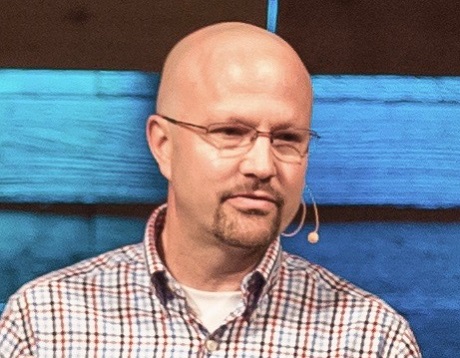- Calls to this hotline are currently being directed to Within Health, Fay or Eating Disorder Solutions
- Representatives are standing by 24/7 to help answer your questions
- All calls are confidential and HIPAA compliant
- There is no obligation or cost to call
- Eating Disorder Hope does not receive any commissions or fees dependent upon which provider you select
- Additional treatment providers are located on our directory or samhsa.gov
Coronavirus and Eating Disorders – 5 Tips to Cope Now

As coronavirus (COVID-19) quickly spreads around the world, it is understandable that many of us are experiencing increased anxiety. In times like these, it is helpful to recall the words of the Serenity Prayer often prayed by Alcoholics Anonymous and ask for “serenity to accept the things we cannot change, the courage to change the things we can, and the wisdom to know the difference.”
If you are in recovery from an eating disorder, you can also take steps to protect your recovery and continue developing freedom around food and body image.
Protect Your Health
Protecting recovery means protecting your body. Take steps recommended by the Centers for Disease Control and Prevention [1] to minimize your exposure to the virus and help limit the spread to others.
- Avoid being exposed to the illness
- Practice social distancing. Avoid groups larger than ten and keep 6 feet between you and those outside of your home.
- Wash your hands often with soap and warm water for 20 to 30 seconds.
- Use a hand sanitizer.
- Avoid touching your eyes, nose, or mouth with unwashed hands.
- Stay home as much as possible, especially if you are sick.
- Clean and disinfect frequently touched surfaces in your home, such as counters, tabletops, doorknobs, bathroom fixtures, toilets, phones, keyboards, tablets, and bedside tables.
Practice Social Distancing…Together
Good health hygiene during this time requires social distancing. This means keeping at least 6 feet away from others in social settings and staying home as much as possible.
However, this does not mean you must isolate relationally. We now have the technology that allows us to text, call, and Facetime with family and friends all around the world. Be intentional about communicating regularly with your support network.
Get Outside
 Social distancing and staying home does not mean you can’t spend time outside. As the weather warms this month, take the time to go out for walks and other outdoor activities. Just be sure to keep your distance from others and avoid large groups.
Social distancing and staying home does not mean you can’t spend time outside. As the weather warms this month, take the time to go out for walks and other outdoor activities. Just be sure to keep your distance from others and avoid large groups.
Keep Your Appointments
Most mental health and medical professionals are offering virtual sessions during the coronavirus outbreak. Don’t use this as a time to miss your appointments. Schedule a virtual session or phone call with your treatment team members.
Practice Good Brain Hygiene
When our brains perceive a threat, they kick into the fight, flight, or freeze mode. These instincts are great when faced with imminent danger.
However, once you have taken the proper steps to protect yourself from the coronavirus, your brain might not settle down, especially if you are continuing to read and worry about what will happen next.
In addition to practicing hand hygiene, you need to practice some brain hygiene. Here are some ways to help your brain relax:
- Cut back or eliminate caffeine from your diet
- Get adequate sleep
- Use a guided relaxation app or website
- Journal your fears and then set them aside
- Limit your screen time
This crisis will pass. As a culture, we will learn lessons and develop resiliency. Though we are inconvenienced in many ways, look for opportunities to grow, rest, and learn during this time.
REFERENCES
1. Centers for Disease Control. (2020, March 16). Prevention of Coronavirus Disease 2019 (COVID-19). Retrieved March 18, 2020, from https://www.cdc.gov/coronavirus/2019-ncov/prepare/prevention.html
About the Author:
 Travis Stewart, LPC has been mentoring others since 1992 and became a Licensed Professional Counselor in 2005. His counseling approach is relational and creative, helping people understand their story while also building hope for the future. Travis has experience with a wide variety of issues which might lead people to seek out professional counseling help.
Travis Stewart, LPC has been mentoring others since 1992 and became a Licensed Professional Counselor in 2005. His counseling approach is relational and creative, helping people understand their story while also building hope for the future. Travis has experience with a wide variety of issues which might lead people to seek out professional counseling help.
This includes a special interest in helping those with compulsive and addictive behaviors such as internet and screen addiction, eating disorders, anxiety, and perfectionism. Specifically, he has worked with eating disorders since 2003 and has learned from many of the field’s leading experts. He has worked with hundreds of individuals facing life-threatening eating disorders in all levels of treatment. His website is wtravisstewart.com
The opinions and views of our guest contributors are shared to provide a broad perspective on eating disorders. These are not necessarily the views of Eating Disorder Hope, but an effort to offer a discussion of various issues by different concerned individuals.
We at Eating Disorder Hope understand that eating disorders result from a combination of environmental and genetic factors. If you or a loved one are suffering from an eating disorder, please know that there is hope for you, and seek immediate professional help.
Published March 31, 2020, on EatingDisorderHope.com
Reviewed & Approved on March 31, 2020, by Jacquelyn Ekern MS, LPC

The EatingDisorderHope.com editorial team comprises experienced writers, editors, and medical reviewers specializing in eating disorders, treatment, and mental and behavioral health.

